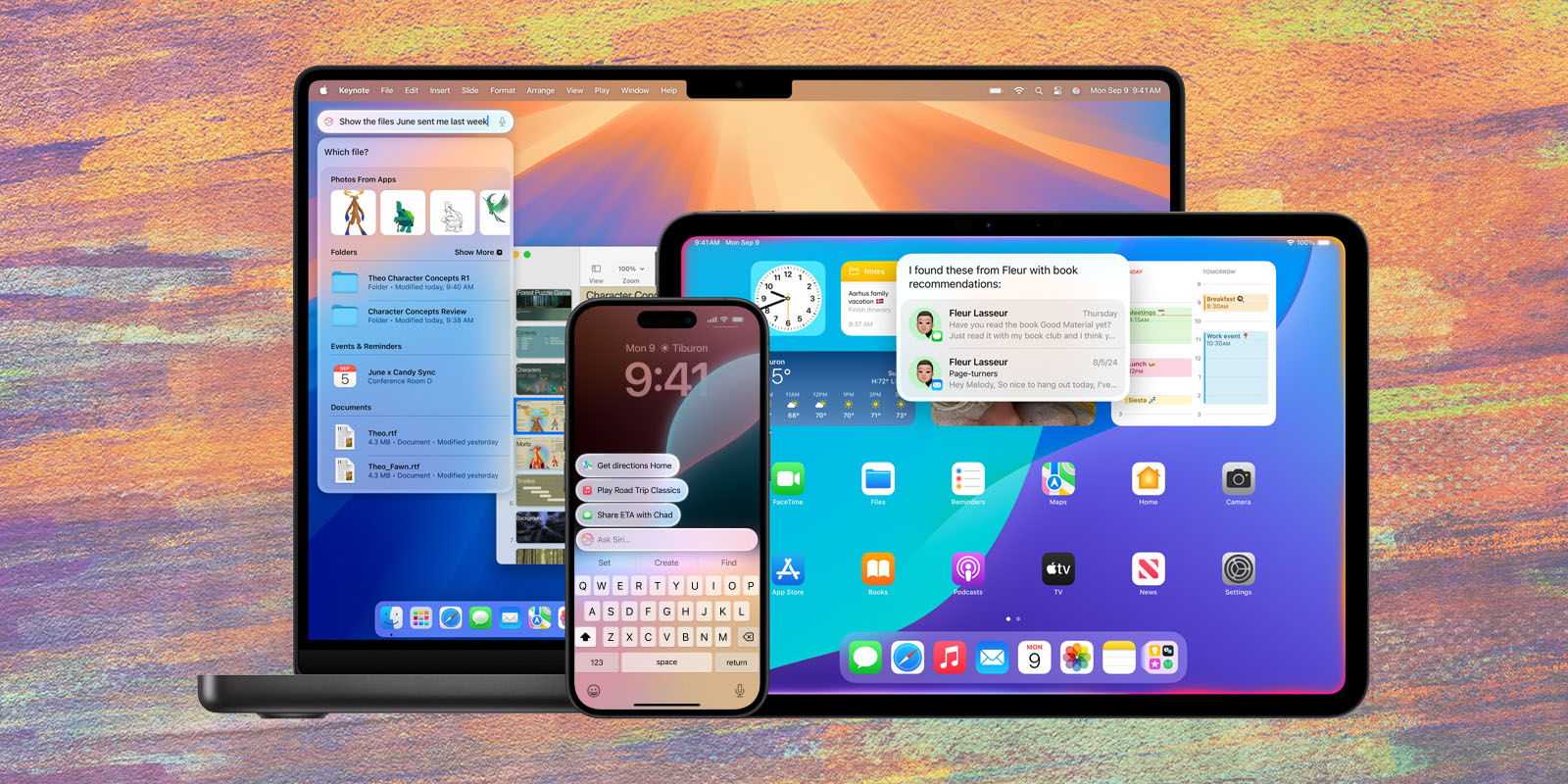
Bloomberg yesterday reported that Apple is currently testing an “LLM Siri” within the company, with the intention of announcing it as an iOS 19 feature.
That will likely see it previewed in June at WWDC 2025, but the report says that it won’t actually go live before the spring of 2026 …
Siri’s progress has been painfully slow
I’ve talked before about the misleading comparisons people sometimes make between Siri and competing intelligent assistants (IAs). It’s easy to make an IA seem far more capable than it is in real-life use, and Amazon has done exactly that by allowing third-party skills which allow the company to claim Alexa can do thousands of things when the reality is very different.
But that doesn’t change the fact that Siri is the dumbest of the three main IAs, and has been for some considerable time. The infamous “Here’s what I found on the web” response has made Siri the butt of countless jokes.
Apple claimed all that has changed with iOS 18.
The start of a new era for Siri. Siri draws on Apple Intelligence for all-new superpowers. With an all-new design, richer language understanding, and the ability to type to Siri whenever it’s convenient for you, communicating with Siri is more natural than ever. Equipped with awareness of your personal context, the ability to take action in and across apps, and product knowledge about your devices’ features and settings, Siri will be able to assist you like never before.
The reality is rather different. We’ve seen a few worthwhile improvements so far, but certainly nothing dramatic enough to be referred to as “a new era for Siri.” Apple’s own small-print notes only that “some Apple Intelligence features will become available in software updates in the coming months.”
Now we’re told to wait until 2026 for an LLM Siri
While Apple tells us to wait for future iOS 18 Siri upgrades, Bloomberg’s report suggests that we’re going to have to wait until iOS 19 for an LLM Siri – that is, one with the kinds of capabilities we see in ChatGPT, Claude, Gemini, Llama and more.
Even then, it won’t come with the launch of the iPhone 17 line-up, says the report, but only in spring of 2026 at the earliest.
The company is planning to announce the overhaul as soon as 2025 as part of the upcoming iOS 19 and macOS 16 software updates, which are internally named Luck and Cheer, the people said.
Like Apple Intelligence this fall, the new features won’t immediately be included in next year’s crop of hardware devices. Instead, Apple is currently planning to release the new Siri to consumers as early as spring 2026, about a year and a half from now.
Privacy is a key challenge for Apple
I’m as frustrated as anyone by how long this is taking. Apple launched Siri as a beta way back in 2011, and then seemed to almost forget about it.
But that slow progress is also in large part driven by the iPhone maker’s commitment to privacy. Apple wants as much as possible to be done on-device, rather than being sent to the cloud, and it wants the cloud processing to be done in the most privacy-friendly fashion.
That’s in contrast with Google. If you read the company’s very many privacy policies, you’ll learn that Google basically uses everything it knows about you from any source – from your web searches to journeys you’ve plotted in Google Maps – to help Assistant answer your questions. This includes third-party services accessed via Google.
Google uses information that you permit it to access, such as your device contacts or activity on Google sites and apps, to provide better, more helpful answers through Google Assistant. Third-party services may also share information with Google pursuant to their own privacy policies when you choose to use those services via Google services.
That makes the IA very powerful, but also gives it free access to a huge amount of your personal data. Whether you consider that trade-off worthwhile is a personal choice, but Apple’s own decision is to place a major emphasis on privacy.
The payoff will be worth the wait
If you’re all-in on the Apple ecosystem, as many of us are, then we can actually have the best of both worlds.
A massive amount of the personal data needed to allow Siri to be a truly intelligent and helpful intelligent assistant is stored right there on our own devices, in Apple Calendar, Contacts, Files, Health, Mail, Maps, Messages, Wallet and so on. We will also have the option to grant Siri access to the specific third-party apps we choose, again right there on our own devices.
Once Siri is able to access those apps, then it can finally become every bit as powerful as competing systems – while still protecting our privacy.
Long-term, that’s the AI future I want: an assistant which knows a great deal about my life so it can act like a human PA, but only on my devices with my permission. That’s the LLM Siri Apple is building, and while I’d love to have those capabilities right now, I do think the wait will be worth it.
What’s your view?
What’s your view? If Siri can become a truly powerful intelligent assistant while fully safeguarding the privacy of our personal data, will the wait be worth it?
Or would you prefer Apple to be more like Google, and pull in our personal data from as many places as possible in order to be smarter sooner?
Please take our poll, and share your thoughts in the comments.
Image: 9to5Mac collage of images from Apple and Nik Shuliahin on Unsplash
FTC: We use income earning auto affiliate links. More.





